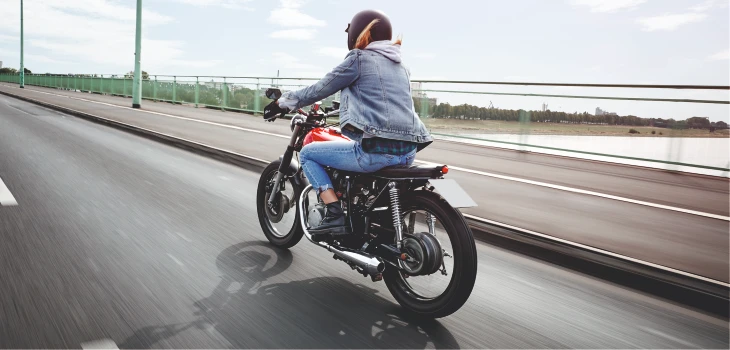Yes. Motorcycles can stop faster in comparison to other vehicles on the road. This is because motorcycles have a lower mass. However, motorcycle riders are still highly vulnerable if they are involved in an accident.
Common types of motorcycle crashes
According to the National Highway Traffic Safety Administration (NHTSA), more than 88,000 motorcyclists were injured in 2015. Motorcycle accidents can happen due to potholes, tree branches, driver distractions, and endless other factors.
If you were involved in an accident, then a Miami Motorcycle Accident Lawyer may be able to assist you with pursuing compensation for medical bills and damages.
Following are some common causes of collisions:
Left-turning cars:
It’s common for a car to take a left turn and collide with a motorcycle. It may strike a motorcycle going straight through an intersection, overtaking a car, or passing the car. Oftentimes, one or both parties may have broken Florida traffic laws.
Lane splitting:
Motorcycle riders may ride between lanes and drive between cars. Even if the traffic is slow, riders must never lane split, as it is an extremely dangerous practice. The rider can sustain severe neck and back injuries after an accident.
Truck accidents:
Crashes involving commercial motor vehicles such as tractor-trailers, 18-wheelers, and semi-trucks can also be fatal. The driver of a heavy truck may not even spot a motorcycle, leading to a catastrophic crash.
Rear-end collisions:
All drivers behind the wheel need to abide by traffic laws to stay safe. Drivers should always wear car seat belts to avoid sustaining fatal injuries. Motorcyclists should take care not to ride at high speed. When any vehicle follows another too closely, a rear-end crash can occur.
Stopping distance for a car vs motorcycle
When a small car is traveling at 60 miles per hour, the stopping distance is nearly 130 feet. A sports car may require 120 feet, and small SUVs may need 132 feet to stop. On the highway, drivers must be careful because it’s all too easy to misjudge the space between their vehicle and another.
A motorcyclist needs about 46 feet for emergency braking to avoid getting into an accident. This length is equal to about 6 cars.
Consider someone riding a motorcycle on a highway with a speed of 60 miles per hour. They can require nearly 240 feet to safely stop. Furthermore, there are other factors that can affect how much time it takes to apply brakes. These include the elevation of the road, parts of the bike, and other road conditions.
Who can be held liable in a motorcycle accident?
Some of the parties that can be responsible for a motorcycle crash are:
- A negligent driver
- The manufacturer
- A government agency
- The motorcycle rider
Drivers must stay alert and take safety precautions by tracking their mirrors and blind spots.
If a car part failure is the cause of the accident, the blame will likely shift to the manufacturer. Government agencies can even be responsible if one of their vehicles collides with yours. Additionally, it’s a municipality’s responsibility to keep all streets safe from potholes. Thus, if a pothole led to your damages, you may be entitled to reimbursement.
What happens in a no-contact motorcycle crash?
To avoid the car, motorcyclists may swerve or lose control of the bike and may collide. Sometimes, they may just lay the bike down. In such situations, there was no contact between a motorcycle and a car.
In cases such as these, the other vehicle doesn’t touch a motorcycle, known as a no-contact motorcycle crash. A swerve to avoid a collision with one car can still result in a crash into another object such as a tree, pole, or a different vehicle.
In these cases, the at-fault driver is liable for damages and injuries. The injured party can file an injury lawsuit to pursue compensation. If you have been in an accident that is causing you physical, mental, or financial hardship, schedule a free case consultation with or call us at 800-572-3753. We look forward to helping you move forward.
